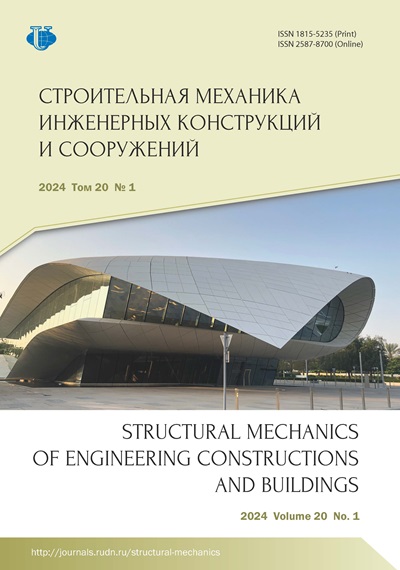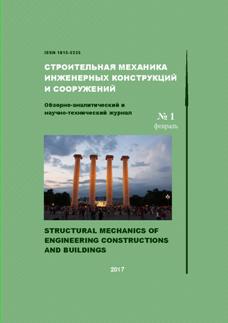LABORATORY RESEARCH OF DEFORMATIONS IN THE LOWER BYEF ON THE EXAMPLE OF THE RYBINSK WATER-ENGINEERING SYSTEM
- Authors: Gritsuk II1, Ionov DN2, Debolsky VK1, Maslikova OY.1
-
Affiliations:
- Water Problems Institute, Russian Academy of Science
- Water Problems Institute, Russian Academy of Science, Friendship University of Russia
- Issue: No 1 (2017)
- Pages: 70-78
- Section: Articles
- URL: https://journals.rudn.ru/structural-mechanics/article/view/15207
Cite item
Full Text
Abstract
Currently, the Russian rivers created by hydro, ensuring the solution of a large number of tasks that combine issues of livelihood and work of major industrial regions of the country. These facilities have significantly changed the natural regime of rivers and surrounding coastal areas. One of the main problems encountered during the construction and operation of hydro - negative channel processes downstream such as washouts and riverbeds destruction shores. Today this task is urgent, and even acute in some areas. However, some issues of erosion of banks and the reorganization of riverbeds downstream waterworks and their impact on the environment is not well understood. When activated, the lateral erosion develops general erosion processes with heterogeneous composition of sediments. In urban areas there is a risk of contamination of river water and coastal areas, damage to pipelines, dams collapse, flooding and inundation of large areas. The study and assessment of the extent of the dynamics of channel processes, allows us to develop recommendations, methods of forecasting and regulatory relief in order to prevent the negative consequences. It is necessary to solve problems that are important for the protection of rivers and coastal areas, and for the proper functioning of the industry and maintain the security of life of the population in such areas. The research of deformation shores downstream waterworks (for example, Rybinsk), a laboratory model at different levels of releases. The simulation showed that the strain is directly dependent on expenditures. However, if there is a permanent presence of transit charges, and it will be gradually added to the cost of other sources, the strain will be considerably less than the sudden release of water without transit.
About the authors
I I Gritsuk
Water Problems Institute, Russian Academy of ScienceGubkina str., 3, Moscow, Russia, 119333
D N Ionov
Water Problems Institute, Russian Academy of Science, Friendship University of RussiaGubkina str., 3, Moscow, Russia, 119333
V K Debolsky
Water Problems Institute, Russian Academy of ScienceGubkina str., 3, Moscow, Russia, 119333
O Ya Maslikova
Water Problems Institute, Russian Academy of ScienceGubkina str., 3, Moscow, Russia, 119333
References
















